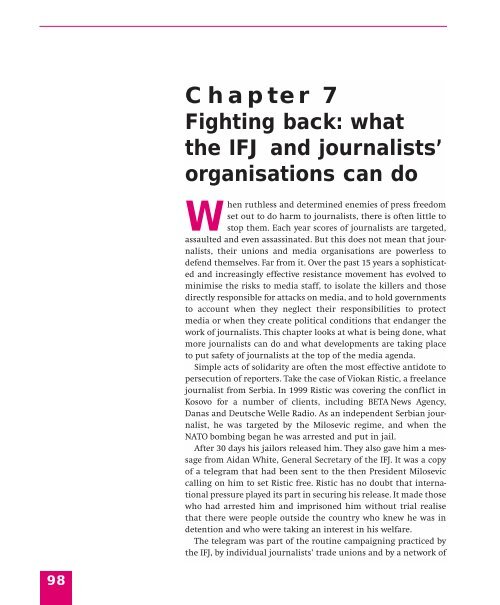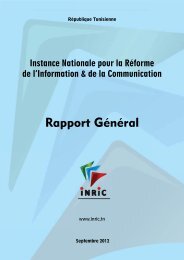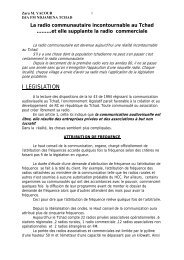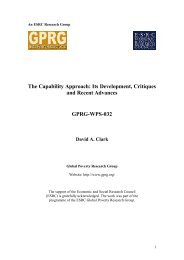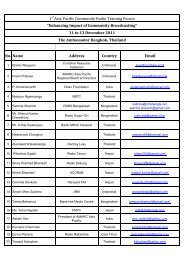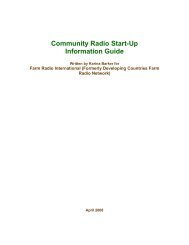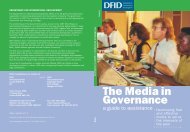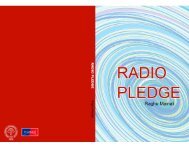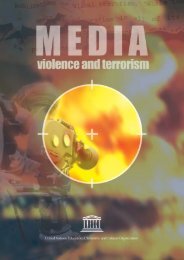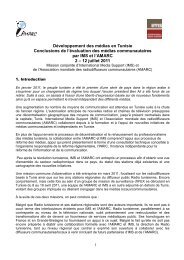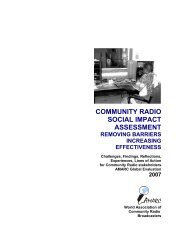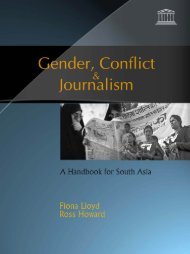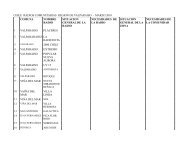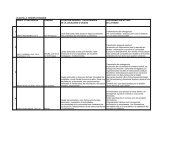Live News - A Survival Guide - International Federation of Journalists
Live News - A Survival Guide - International Federation of Journalists
Live News - A Survival Guide - International Federation of Journalists
- No tags were found...
You also want an ePaper? Increase the reach of your titles
YUMPU automatically turns print PDFs into web optimized ePapers that Google loves.
Chapter 7Fighting back: whatthe IFJ and journalists’organisations can doWhen ruthless and determined enemies <strong>of</strong> press freedomset out to do harm to journalists, there is <strong>of</strong>ten little tostop them. Each year scores <strong>of</strong> journalists are targeted,assaulted and even assassinated. But this does not mean that journalists,their unions and media organisations are powerless todefend themselves. Far from it. Over the past 15 years a sophisticatedand increasingly effective resistance movement has evolved tominimise the risks to media staff, to isolate the killers and thosedirectly responsible for attacks on media, and to hold governmentsto account when they neglect their responsibilities to protectmedia or when they create political conditions that endanger thework <strong>of</strong> journalists. This chapter looks at what is being done, whatmore journalists can do and what developments are taking placeto put safety <strong>of</strong> journalists at the top <strong>of</strong> the media agenda.Simple acts <strong>of</strong> solidarity are <strong>of</strong>ten the most effective antidote topersecution <strong>of</strong> reporters. Take the case <strong>of</strong> Viokan Ristic, a freelancejournalist from Serbia. In 1999 Ristic was covering the conflict inKosovo for a number <strong>of</strong> clients, including BETA <strong>News</strong> Agency,Danas and Deutsche Welle Radio. As an independent Serbian journalist,he was targeted by the Milosevic regime, and when theNATO bombing began he was arrested and put in jail.After 30 days his jailors released him. They also gave him a messagefrom Aidan White, General Secretary <strong>of</strong> the IFJ. It was a copy<strong>of</strong> a telegram that had been sent to the then President Miloseviccalling on him to set Ristic free. Ristic has no doubt that internationalpressure played its part in securing his release. It made thosewho had arrested him and imprisoned him without trial realisethat there were people outside the country who knew he was indetention and who were taking an interest in his welfare.The telegram was part <strong>of</strong> the routine campaigning practiced bythe IFJ, by individual journalists’ trade unions and by a network <strong>of</strong>98


